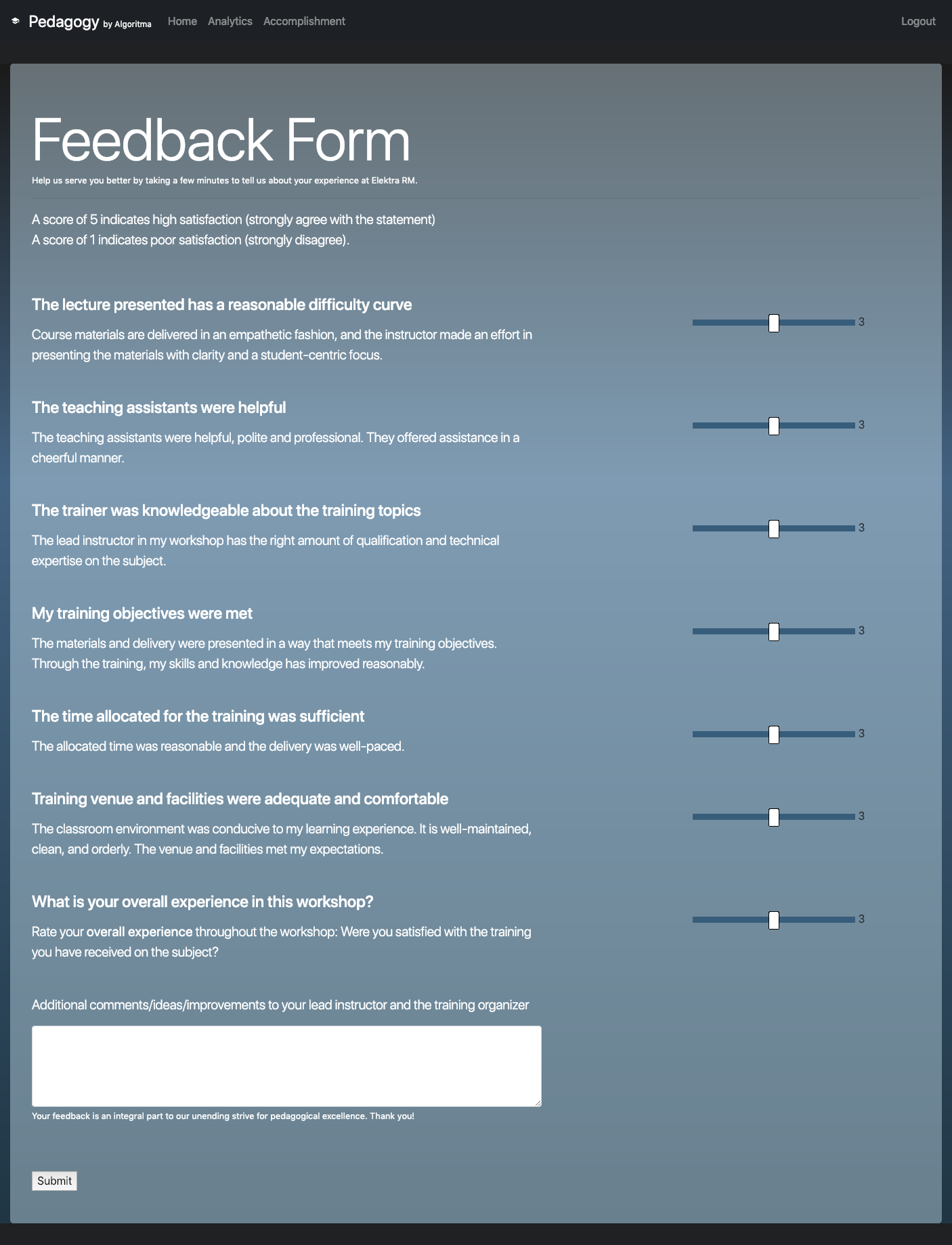Algoritma Gives Better Odds
By Samuel Chan | March 4, 2020
The One Quality
I hate getting into arguments. I especially dislike being in a confrontational situation and I distant myself from any political, ideological, philosophical debates as much as I can afford to.
That’s the first thing about me. The second thing: I am rather opinionated (Those two things are not always compatible with each other).
A manifestation of this is in the way Algoritma Data Science program is run, from the minute detail to the broad overtones of how we approach each lecture.
Ask for adjectives from our alumni and you’ll have no shortage of them. The trainers are “knowledgeable”, “rehearsed”, “well-prepared”; The curriculum is “meticulous”, “methodical”, “well-composed”;
But whenever I’m quizzed on the one quality that I’m most proud of about our roster of instructors, I have only one answer.
They’re humble. You will always be at the heart of their universe.
Make no mistake. We have 29 instructors, 20 of which are active, full-time educators who on top of their lecturing duties also work with corporate clients and participate in industry projects. I have no doubt they are the absolutely most qualified instructors I can put together, and more than 9,000 students agree. A staggering number considering that we’ve started only in June 2017.
The first instructor to be certified by RStudio anywhere in Asia is employed by our school. The second in Asia? Also an instructor in our school. The third as well. The fourth too.
But all of those are secondary. None of those matter more so than the fact that they are kind; and that you are always at the center of their universe.
Center of the Universe
Learning programming is unlike learning anything else. There are no close parallels. It’s hard, and borderline masochistic to many people. We know, we’ve all been there before.
To give it any reasonable chance of success at all, your programming education deserves full attention. People who care to fully commit. In the 30+ months we have operated, we have never had a part-time instructor. (That’s not entirely true either – to be fair, we trialed on this model 2 years ago but when the data came in, we knew it wasn’t the right path for us.)
Since then we have only ever hired full time industry educators who have your best interest at heart. We never made another hire who is not fully committed to your learning journey. Who is only prepared to teach you part-time, in some evenings away from his full time work. We strongly felt that your education deserves more than that.
We collect anonymised survey, after every workshop. We insist on it being anonymised because we want you to tell the truth about your learning experience and your progress.
We care so deeply because you’re the center of the universe and everything else is peripheral. Qualifications and expertise of the lead instructors don’t matter if they do not translate to actual skill gain in you.
A Personal Fight
Two months ago, one trainer (PhD, lecturer of 10+ years) who were assigned to carry out our data science program in Singapore challenged that pedagogical philosophy fiercely. He fundamentally believes (and he has it in his presentation slides) that the “lecturer” is at the heart of the universe in any given classroom. The lecturer is the focal point. The students are his audience. His exact quotes were that “we have been teaching for 10 years in academia”. He refused to be “surveyed” by the students, despite our repeated insistence. It went on for a few months. It was emotionally draining and it was a painful exchange of words.
We dropped him from the program last month.
Professors with a long-standing academia background often have a mentality they sip into teaching routines, that is fundamentally different from ours. There are merits to both approaches. Learning to teach, for an educator from an academia background, implies getting well-versed with Bloom’s Taxonomy (we love this), Webb’s DOK or some textbook frameworks you will find in a local library.
We argued, that everyone is a poor educator (the “baseline”) unless your focal point / center-of-the-universe says otherwise. In electronics parlance, the lecturer is the transmitter, but to measure the strength of a transmitter you look to the receiver. The transmitter is assumed to produce no useful radio waves until the radio receiver offers feedback.
We assumed we don’t know if you’re actually gaining programming skills until you explicitly prove to us otherwise. 10 years of teaching experience isn’t evidence. We may be the expert in teaching, but you are the expert of your own progress, your bottlenecks, your learning challenges and your unique circumstance.
To know whether you’re a good spouse, you ask your significant other. You don’t get a say in this; your wife / husband does.
“But didn’t he say he has been teaching for 10 years in academia? Surely he must be somewhat decent.”
No. Do you know how many people have been married for 10 years and are absolutely crappy spouse to their significant other? Look up the statistics.
Tipping the Odds
I hated arguments, and naturally I don’t get into them lightly. But I will fight to defend the core pillars on which our academy stand.
Very few other things I have felt more opinionated about. But that’s because learning data science is hard. To give you the most realistic chance of being gainfully employed doing what you love, every tiny details that help tip the odds matter.
So what do we hire for? kindness, humility and empathy first; technical strengths, pedagogical competencies, and demonstrable experience second. With educators that put you at the center of the universe, we have better odds.
With unlimited lifetime learning (no hidden terms), we have better odds.
With unlimited mentoring sessions, we have better odds.
With one-on-one, apprentice-style learning, we have better odds.
When we listen to you, we have better odds.
We all like better odds.







